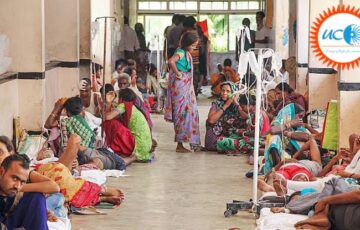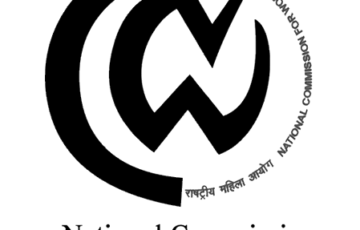Abortion in India
Q. Enumerate the laws that govern abortion in India. What are the challenges pertaining to these laws and suggest measures accordingly?
Approach:
|
Answer:
Abortion: Abortion is a common health intervention. It is safe when carried out using a method recommended by WHO, appropriate to the pregnancy duration and by someone with the necessary skills.
Evolution of Abortion Law in India: MTP Act
Pre-1960s: Illegal Status of Abortion
-
- Abortion was illegal and punishable under Section 312 of the Indian Penal Code (IPC) before the 1960s.
1964: Formation of Shantilal Shah Committee
-
- It was set up to examine abortion-related matters and the necessity of laws around abortion in India.
- The Committee recommended liberalization of abortion laws to reduce unsafe abortions and maternal mortality.
1971: Introduction and Passage of MTP Act
-
- MTP Act was introduced and passed by Parliament in August 1971, based on the recommendations of the Shantilal Shah Committee.
- The MTP Act allowed abortion up to 20 weeks of pregnancy and granted immunity to doctors performing abortions in line with its provisions.
The MTP Act allowed termination of pregnancy by a medical practitioner in two stages.
- For termination of pregnancy up to 12 weeks from conception, the opinion of one doctor was required.
- For pregnancies between 12 and 20 weeks old, the opinion of two doctors was required
2002: Brief Amendment for Medical Abortion Pills
- The MTP Act was briefly amended in 2002 to allow the use of medical abortion pills, mifepristone and misoprostol.
2021: Amendment to Extend Abortion Limit
- The MTP Act was amended in 2021, extending the abortion limit from 20 to 24 weeks.
- The amended MTP Act allowed the termination under the opinion of one doctor for pregnancies up to 20 weeks.
- For pregnancies between 20 and 24 weeks, the amended law requires the opinion of two doctors.
- The MTP Act (amendment) specified seven categories of women eligible for termination between 20 and 24 weeks of pregnancy:
- Survivors of sexual assault or rape or incest;
- Minors;
- Change of marital status during the ongoing pregnancy (widowhood and divorce);
- Women with physical disabilities
- Mentally ill women including mental retardation
- The foetal malformation
- Women with pregnancy in humanitarian settings or disaster or emergency situations.
Salient features of the “Medical Termination of Pregnancy Act 2021”:
Abortions before 20 weeks of pregnancy:
- Terminating a pregnancy up to 20 weeks will only require the medical advice of one doctor.
Abortions upto or beyond 24 of pregnancy:
- Abortion is legal for women in certain circumstances up to 24 weeks.
It would include:
-
- Survivors of rape, victims of incest and other vulnerable women (like differently-abled women, minors) etc.
- Opinion of 2 providers is required for termination of pregnancy of 20-24 weeks of gestation.
A state-level medical board will be set up to decide:
-
- If pregnancy may be terminated beyond 20 months till 24 months.
- Such a decision can be taken by the medical board only afterdue consideration and,
- ensuring that the procedure would be safe for the woman.
- The time frame available to the Medical Board is 3 days.
- The upper gestation limit does not apply in cases of substantial foetal abnormalities diagnosed by the Medical Board.
Anonymity:
- Name and other particulars of a woman whose pregnancy has been terminated shall not be revealed except to a person authorized in any law for the time being in force.
Marital and age criteria:
- Unmarried women can also access abortion under the above-mentioned conditions because it does not mention the requirement of spousal consent.
- If the woman is a minor, however, the consent of a guardian is required.
Intentionally causing a miscarriage:
- Section 312 of the Indian Penal Code holds intentionally causing a miscarriage as a criminal offence.
Significance of the MTP Act
Constitutional right:
- The reproductive choice is personal liberty guaranteed under Article 21 of the Indian constitution.
Reproductive Rights of a Woman:
- The laws provide greater reproductive rights and dignity to women as abortion is considered an important aspect of the reproductive health of women.
Right to Privacy:
- The rape victims and vulnerable victims are also benefitted from Privacy Clause.
Encouragement to Safe Abortion:
- Deaths and injuries from unsafe abortions are largely preventable provided services are performed legally by trained practitioners.
- The procedures are performed under proper medical and surgical supervision if done in the hospital setting.
- If termination pills are taken at home, it must be under medical supervision and follow up.
Concerns related to the abortions:
- Foetal Pain: Concern that fetuses beyond 20 weeks of gestation may experience pain during abortion.
- Psychological Impact: Some argue that young women who undergo abortion may face an increased risk of subsequent depression.
- Reduced Adoptable Babies: Critics suggest that instead of abortion, women should consider giving unwanted babies up for adoption, as single parenthood becomes more accepted.
- Abortion as Contraception: Moral objections to using abortion as a convenient method of birth control, emphasizing the value of unborn life.
- Responsibility and Morality: Argues that individuals should accept responsibility for their actions and consequences, especially when becoming pregnant.
Way Forward
- Recognize Abortion as a Human Right: Acknowledge abortion as a fundamental human right, as supported by international frameworks such as the United Nations, the European Court of Human Rights, and the African Commission on Human and People’s Rights.
- Commit to Prevent Unsafe Abortions: Reiterate and uphold the commitment made by 179 governments at the 1994 International Conference on Population and Development to prevent unsafe abortions.
- Extended Abortion under MTP Act: Permitted Beyond 24 Weeks Only for Substantial Foetal Abnormalities Diagnosed by Medical Board
- Address Criminalization of Abortion: The UN Recognize that the criminalization of abortion is a form of gender-based violence and may violate women’s rights to health, dignity, autonomy, and equality.
- WHO’s Safety Classification: The WHO has classified abortion procedures into three categories, namely, safe, less-safe and least-safe.
- Lancet study from 2010 to 2014 showed 54% of abortions were safe, 30% were less safe, and 14% were least safe.
- Maternal Health and Mortality: Acknowledge that unsafe abortions are a leading cause of maternal mortality, contributing to 13% of such deaths.
- Address the urgency of improving the safety of abortion procedures.
- Promote Societal Well-being: Emphasize that ensuring safe abortion access is not just about human rights but also contributes to the overall well-being of societies.






